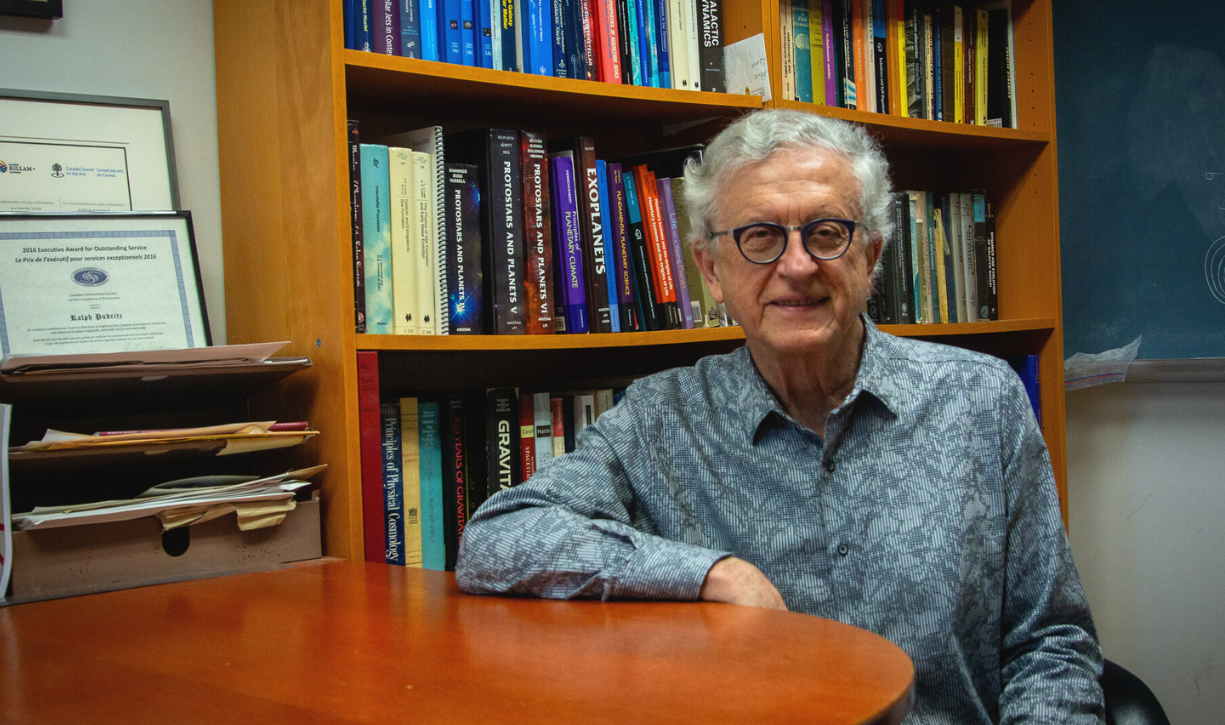Why McMaster donors give: Ralph Pudritz works for ‘access, involvement and experience’ in research

Physics and Astronomy professor Ralph Pudritz contributes annually to a fund that improves access to research opportunities for racialized, Black and Indigenous students.
Ralph Pudritz is passionate about research.
A theoretical astrophysicist, he has dedicated his career to researching the formation of stars and planets, and the origins of life. And after nearly four decades as a professor and scientist, Pudritz firmly believes in the importance of students engaging in research early.
“Until you do it yourself, words like ‘research’ and ‘innovation’ are just buzzwords. They’re just abstract concepts,” says Pudritz, a professor in the department of Physics & Astronomy.
“Research exposes you to interesting ideas, develops your skill methods, connects you with other students, and you really become part of the way a department works.”
Getting involved in research early gives students a leg-up in their careers and creates opportunities they wouldn’t otherwise have, says Pudritz. And it’s essential to remove any barriers to those opportunities.
“I believe it’s extremely important to set aside funding in a format that acknowledges that there are people who historically have not had the advantages of the bulk of the population, and to take action to compensate for that,” he says.
Pudritz makes an annual gift to the Physics & Astronomy Research Experience Award Fund. The award, designated for students who identify as racialized, Black or Indigenous, gives them the opportunity to collaborate with a professor on the research topic of their choosing.
It provides them with unique mentorship experiences, a strong peer and professional network and develops critical research skills.
“I’m one of a number of people who have donated to this fund over a number of years and we hope to keep it growing,” he said.
“It’s really about giving people access, involvement and experience with the university and the department that they might otherwise not have.”
The point is to help students understand who they are, what their abilities are and to remove the constraints to that discovery, Pudritz says.
“Ultimately, the best thing you can do for a person is to open the doors to their own self-knowledge and self-awareness and their own skills. To give them the confidence and the skillset they need to charge forward in their own lives.”
The benefits of giving are not just to the recipient, he says. “It returns in spades to the giver. The knowledge that you’ve helped someone along in their lives — you’ll never regret donating and helping in a worthy way.”
Pudritz, joined McMaster in 1986, founded McMaster’s Origins Institute, which takes an interdisciplinary approach to answering fundamental questions about the universe — from the origins of space and time to the origins of consciousness.
“I was very proud to be the director for 11 years,” he said. “As part of that, we created Canada’s first and only graduate program in astrobiology and the origins of life.”
Pudritz and his colleagues also created the Origin of Life Laboratory, equipped with a unique planetary simulator that mimics the early conditions with which life first took hold.
This is an exciting time for students entering the field of astronomy and astrophysics, he says.
“We’re now able to attack fundamental questions such as the origin of planets and possibly life on other worlds in ways that were almost inconceivable even a decade ago.”
Pudritz hopes that within the next decade, astronomers will have discovered “Earth 2.0” and have the ability to search for signs of life in its atmosphere.
“I do think we have the instrumentation that will allow us to do that,” he says. “In this coming decade, we will be incredibly more advanced than we are right now.”
Why McMaster donors give: At McMaster University, every single gift, no matter the size, has the potential to make a difference in the lives of our students, the quality of our research and our ability to give back to our community and influence the future. We asked some of our donors and their families what motivates them to give. These are their stories.

